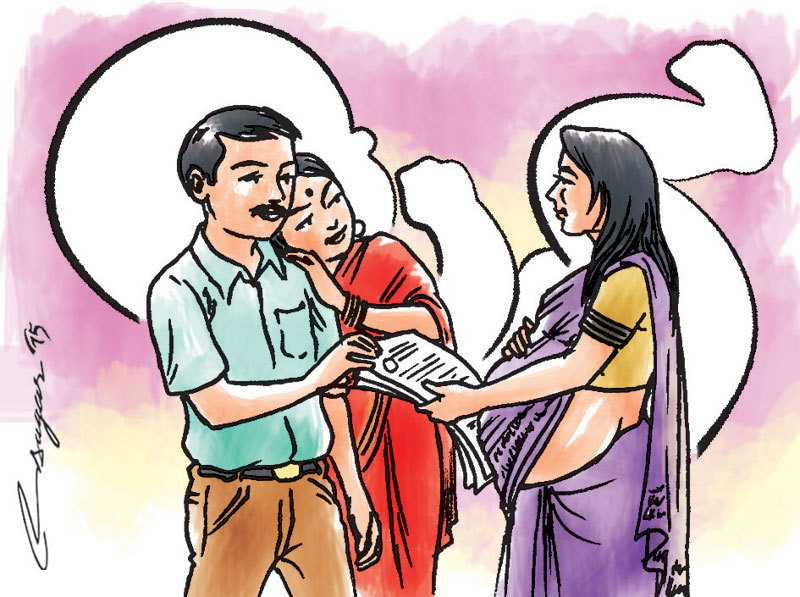No law on altruistic surrogacy despite Supreme Court directive
Kathmandu, October 14
The government has yet to do anything about the Supreme Court directive to the government two years ago ordering it to enact a new law to govern altruistic surrogacy.
Spokesperson for the Ministry of Health and Population Mahendra Shrestha said the ministry was preparing in-vitro fertilisation (IVF) policy, which was the first step to decide surrogacy issues.
“Surrogacy is not that bad but seems to have failed around the world. When a surrogate mother gives birth to a mentally retarded child or a child with congenital defects, nobody — neither the surrogate mother nor the intended parents — take custody of the child,” he said, adding that if surrogacy law was enacted, it would only be for Nepali nationals.
Minister of State for Health Dr Surendra Kumar Yadav told THT that the ministry had not been able to discuss the issues related to altruistic surrogacy due to its priority on some more important policy issues. “We need to carefully analyse the possibility of acceptance of surrogacy and its possible impact on our society. We cannot easily emulate the practice of other countries,” the state minister added.
Gynaecologists Dr Jageshwar Gautam and Nutan Sharma, however, said surrogacy option should be available for childless couples. “A woman may not have womb for various reasons and if such a woman is not given an option to conceive through surrogacy, then it cannot do justice to the woman,” Dr Gautam argued. Dr Sharma echoed his views.
The two gynaecologists said while banning paid surrogacy could be justified, banning altruistic surrogacy would not be justified. They said only Nepali nationals should be allowed to benefit from altruistic surrogacy.
“If somebody agrees to rent out her womb for free to her close relatives, then why should the state object to such practice? This newly developed medical technique is the most preferred way for childless couples to have babies,” Dr Gautam said. He said over 400 women would benefit annually if the government allowed altruistic surrogacy.
“If a person can donate kidney, eyes or other organs after his/her death, why can’t a woman rent out her womb?” he wondered.
Dr Gautam said that while allowing altruistic surrogacy the only thing that the government needed to be mindful was that the woman who agreed to rent out her womb for free did not face any health risk or became a victim of exploitation.
Advocate Nirmala Bhandari said a new law was needed to govern surrogacy. “The Supreme Court has said surrogacy for the commercial purpose cannot be allowed but there is no law that can penalise people who are engaged in commercial surrogacy,” she argued.
Senior Advocate Purna Man Shakya said the SC had observed that the right to rent out womb was not a fundamental right. “Most countries around the world allow surrogacy on humanitarian grounds which enable relatives to rent out womb for free to help childless couples have babies. Some countries, however, allow women to rent out their womb for commercial purposes,” he said. He added that in Nepal it would be better to completely ban surrogacy as altruistic surrogacy could be misused.
The Cabinet had decided on 19 September 2015 to ban surrogacy. A division bench of the then chief justice Sushila Karki and Justice Govinda Kumar Upadhyaya had passed an order on 14 July 2016 in a surrogacy case, ordering the government to ban commercial surrogacy. It had, however, told the government to enact a new law to allow altruistic surrogacy for Nepali nationals.






